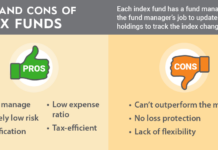We all expect and accept that Artificial Intelligence will play an important role in the global economy of the future. But are we ready to entrust robots with our investments? Well, there is a good chance that you already do to some extent, as more and more investment operations are turning to AI to crunch the numbers and assist with market trading.
Last year, reports circulated that a new fund, the AI Powered Equity ATF (AIEQ), had been launched on Wall Street. By January 2018, after only three months of trading, the fund was up by 10% and performing well. What made this fund unique was that its decision making was performed by Watson, the IBM supercomputer. Equbot, the startup company at the center of the ATF, created the Equbot Model for Watson to identify companies that have the best chance to increase in value and provide a return for investors.
Now Equbot has just announced a second ETF, this time focusing its computational power on the international non-US-based equities.
InvestItIn caught up with Chida Khatua, the CEO and co-founder of Equbot, to ask his opinion on what AI has to offer investors and what the future holds for AI within the financial services.
What would you say to an investor who is skeptical about AI Investment platforms?
EquBot regularly experiences AI investment skepticism from both retail and institutional investors. AI Investment platforms are a fairly recent development so the lack of performance information and educational materials drives the skepticism. We acknowledge investors must get comfortable with the overall lack of performance track record as the only remedy for this concern is time.
Another driver of skepticism is because most other AI funds have kept AI as a “blackbox”. At Equbot, our AI investment platform is designed to be more observable and hence explainable.
Equbot AI investment platforms mimic an army of research analysts and portfolio managers. It follows a similar process as rational investors, doing deep due-diligence on companies and selects securities and their corresponding exposure levels. The platform is able to perform this functionality on a grand scale by assimilating all potential data – over 15,000 globally traded companies. So we view AI as a powerful tool, and probably the only tool to analyze the explosive growth data environment. The skeptic question then becomes if he/she believes the amount of data influencing financial markets will only continue to grow – if so, AI becomes essential. AI investment algorithms continually evolve so experiencing different market conditions and collecting more data will only make these investment platforms stronger with time.
Frankly, we are also encouraged by the level of skepticism and overall lack of awareness in the financial marketplace as it is indicative of a tremendous opportunity. In general, AI is becoming more widely accepted as commercial use cases like driverless cars, online advertising, and healthcare innovation are producing amazing results and we anticipate this success will continue into the investment marketplace. Early adopter investors willing to overcome their skepticism and invest in AI investment solutions will benefit the most as additional capital will serve as tail-winds when the technology successes become more widely known.
At what point, if it ever occurred, would you intervene if AI Watson (or another AI) started losing money for investors?
We continually evaluate our system and the investment information environment it operates. The unique architecture of the EquBot investment platforms allows us to process millions of news articles and market signals to gain unique market insights specific to our investment portfolios. This capability allows us to understand the decisions made in our AI investment portfolios and identify the signals that drive change/trades. We have developed several patents around our platform (including the processing of financial fake news) and place human checks throughout our investment platform to ensure the integrity of our data and investment products. We make it a point to eliminate human bias throughout our investment processes and view this characteristic of our system as a strategic advantage. If any inexplicable impact happens, rather than trying to fix the process, we can disaggregate our signals to better understand the risk rather than introducing our own bias by overriding the data-driven systematic decisions.
Where can you see AI technology in investments in five years time?
We have seen significant AI investment from technology and financial firms alike. As a direct result, we believe the prevalence of AI investment solutions will increase over the next five years. This spurt of financial innovation will drive growth opportunities across asset classes, but will likely also start the demise of legacy financial products (similar to the shift away from closed-end mutual funds to ETFs and Taxis to Uber/Lyft). We are already seeing AI’s influence in trading, making investment decisions, and even understanding client needs. Finally, we anticipate AI taking an eventual role in not just driving investment decisions, but also in helping improve companyies’ execute and structure strategic deals.
In science fiction, AI usually ends in the robots taking over the world or just generally doing bad things. Should we be afraid of what we are creating?
The AI singularity is an interesting phenomenon, but does not accurately translate into how AI investment products are designed and implemented. AI investment products are objective based tools to help people better manage their investments. And the high-level objectives are set by us. So it is a powerful tool to better help us meet our objectives. Further, our investment markets maintain structural protections as trade execution occurs when buy and sell orders are matched off. We see AI as improving the overall efficiency and abilities of financial market participants. We need to embrace the technology and use it in right way.












